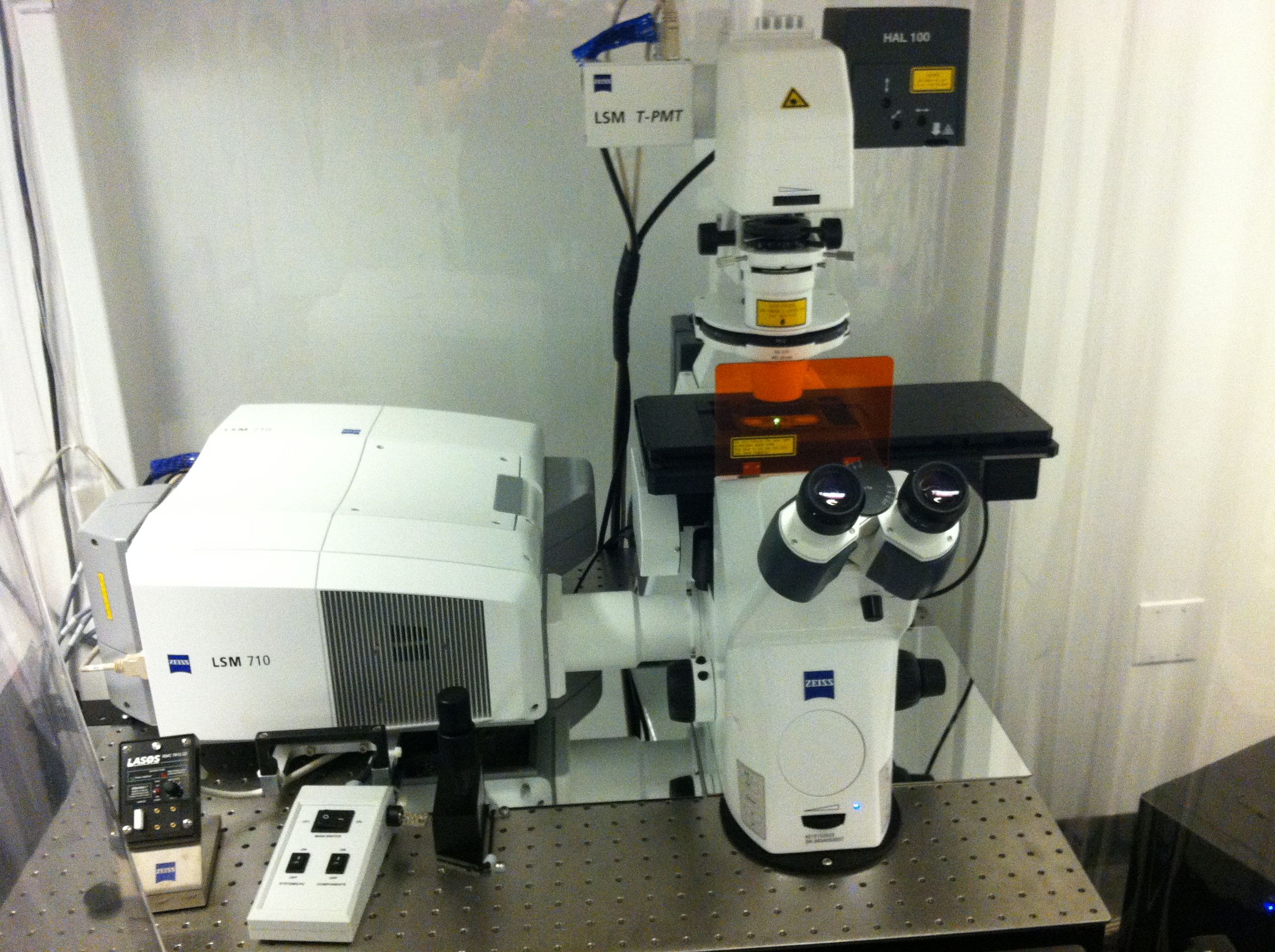
The Zeiss laser scanning microscope (LSM) is a confocal light microscope that also uses helium/neon and argon lasers to image samples. The LSM can take a three-dimensional scan of samples, allowing the user to have a deeper understanding of how surface structure of their sample appears. Our LSM is equipped with a Zeiss Axiovert inverted microscope and a wide range of lenses including: Plan-Neo 1.25X, Plan-Neo 2.5X, Plan-Neo 5X, Fluar 10X, Fluar 20X, Plan-Neo 40X, and Plan-Neo 100X (oil immerision). The instrument accommodates five lenses at a time. Confocal microscopes use specific wavelengths of light to excite fluorescent molecules within a sample. Our Zeiss 510 uses the following lasers: 458/488 nm Argon, 543 nm HeNe (helium/neon), and a 633 nm HeNe.
Additional software available at the MIF to further analyze data collected from the LSM includes the Fledermaus de-convolution program. This software allows the user to explore their collected data like a map. This software is also applicable to geological maps and scans.